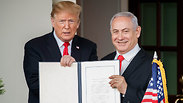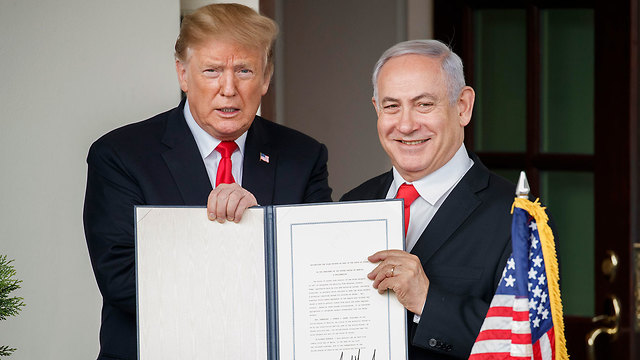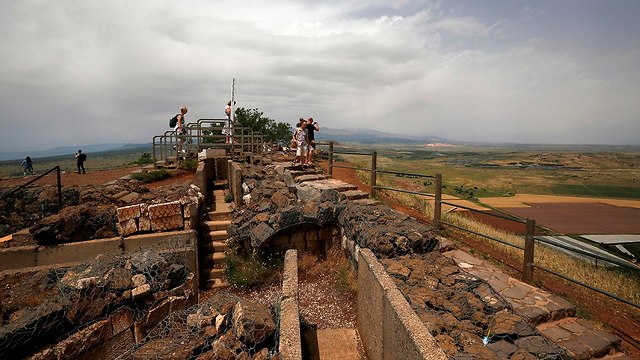
On Monday, the White House invited a herd of journalists and photographers into the Oval Office to commemorate the meeting between US President Donald Trump and his guest, Prime Minister Benjamin Netanyahu.
This meeting marked an historic moment for the prime minister, no less, when the United States recognized Israel's sovereignty over the Golan Heights. But this photo opportunity had an unexpected consequence - a boost for none other than Syrian President Bashar Assad.

During the civil war in Syria, Assad murdered close to half a million men, women and children and turned some seven million people into refugees. On occasion, the Syrian leader used even chemical weapons on his own people.
But after Trump's tweet last weekend, the mass murderer became a recognized leader with sweeping international support from European countries, Russia and China, who have already announced that they are absolutely opposed to the American move to recognize Israeli sovereignty over the Golan Heights.
This is not merely a declaratory process. Bashar Assad should have been indicted for genocide in the International Court of Justice in The Hague, but instead he will receive international aid aimed at keeping him in power.
Now, the Russians will invest tremendous efforts in rebuilding the Syrian army. Iran will continue to tighten its grip on Syria, and the Arab countries together with European nations will give Assad the international umbrella that will signal to the Trump administration that it must respect the world order.
In other words: the status of an occupied territory can change only through an international agreement, not through a unilateral declaration by one country.
Many Israelis feel that the country must take advantage of the fact that there is a president in the White House who is willing to stand by the Jewish state in every situation, but they must not underestimate the validity of international institutions.
After Trump, there will be a new US president, who with one tweet can also overturn a large part of his predecessor's policies. What then?
Furthermore, Israelis must remember that the country was founded by two moves: the United Nations partition plan that recognized the Jewish settlement in Palestine, and an operational plan based on the concept of claiming the land acre by acre. In other words the state was established by active Zionism, not merely a collection of empty words and declarations.
For years an active approach formed the basis for negotiations between Israeli prime ministers and its neighbors, in order to reach agreements over the country's permanent borders.
Netanyahu tried to reach an agreement with late Syrian leader Hafez Assad in 1999, and again with his son and successor Bashar Assad in 2010. He intended to include the return of the Golan Heights in a peace agreement that would include the establishment of an Israeli embassy in Damascus. There is no way Netanyahu can possibly deny that he was prepared to give up the Golan in exchange for Israelis eating hummus in Damascus.
But now we have American recognition of Israeli sovereignty over the Golan Heights, just in time to help Netanyahu win his fifth term as prime minister.
Yehuda Harel, the pioneer of settling the Golan, already said after Trump's tweet that the Golan Heights would remain under Israeli sovereignty not because of a decision made by whoever is sitting in the prime minister's residence, but rather by those who cling to its harsh rocky land. Aagain, declarations do not create facts on the ground.
It is very possible that the American declaration is the actually the start of the countdown for the return of the Golan Heights to Syria, either through negotiations or renewed Syrian hostilities against Israeli targets, backed by Russia and Iran.
Those who want to prevent further bloodshed on the border must strive for agreements backed by international recognition. The concept of "a nation dwelling alone" cannot replace recognition from the rest of the world.



















